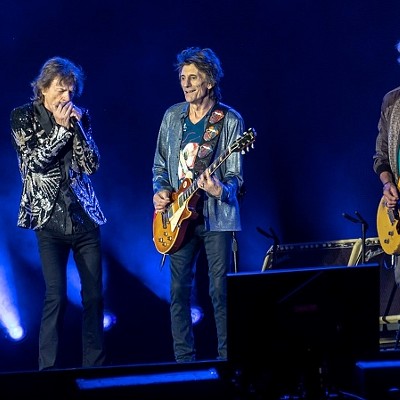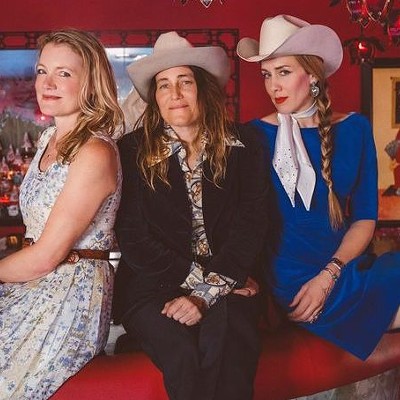One of the most remarkable things about the new Houston Rap book by photographer Peter Beste and writer Lance Scott Walker is that it captures not just the men and women who produced the city's syrupy sound, but the day-to-day environment that produced them. It's safe to say that no book has delved as deeply into Houston's historic African-American neighborhoods at the dawn of the 21st Century as this one has. That means big, glossy pictures of vibrant, happy places full of smiling people, from nightclubs and jewelry shops to car washes and convenience stores.
It also means full-page pictorials of boarded-up houses, overgrown lots, sketchy parking lots and abandoned vehicles. Like the music that inspired this project, Houston Rap celebrates both the good and the bad found in the 'hood.
Both Beste and Walker are originally from the Houston area, but the neighborhoods in the book are clearly not their own. How did they convince some of the city's oldest and hardest hip-hoppers to take them around these highly insular places and open their world to a couple of strangers with a camera and a tape recorder?
"As the project went on, we got really good at explaining what we were doing," Walker says. "We got really good at talking about the narrative and talking about how we wanted to do things. We started bringing early drafts of the book into the neighborhoods with us, like a binder, basically, full of photos and text. It was a real early version of the book; didn't look anything like what came out.
"It showed people what we were working on, and what kind of character we were showing," he continues. "It showed people that we wanted to show something very real that really represented them."
REWIND: How Two White New Yorkers Created the Ultimate Portrait of Houston Rap
"Representing" is a crucial concept for many of the personalities who appear in the book. With the help of their subjects, Walker and Beste were able to capture the neighborhoods within neighborhoods where Houston's rap scene was born, raised and nurtured over the past 25 years. To most of the city's white, Hispanic and Asian populace, these places are largely invisible. But to those who have lived there, each has its own flavor and connotations -- and where you're from says something about you.
In the book, author and former Beltway 8 Records CEO Mike Moe sums the connection between people and places up:
"When I lived in Third Ward, Third Ward was a community," he says. "Third Ward was a city. That's why they called it 'Third Ward, Texas.' And South Park was 'South Park, Texas.' Southwest was Southwest, you know.
"Houston is home for everybody, but we're in our city; we don't claim Houston," he continues. "We claim Fifth Ward, Third Ward, Sunnyside, South Park. That's just it."
The more time that Beste and Walker spent in these neighborhoods, the more their eyes were opened. The pair got old heads like Big Mike, Willie D and MC Wickett Crickett to open up about the often uneasy distance between the North and South sides of the city and the fast-money lifestyles and ruined lives ushered in by the rise of crack in the late '80s and early '90s.
"There were a bunch of surprises, but I think one of the biggest surprises was seeing how vicious the cycle was of the system these guys get caught up in," Beste says. "It seemed to me that these neighborhoods are basically preyed upon by, at the risk of sounding melodramatic, the private prison industry. They get caught up once, and they're often in there for years and it's a really difficult cycle to get out of.
"This is something that really hit home with me after a few years of spending time there getting to know these guys, some of which were really great people, but would screw up doing one thing or another -- you know, nothing that serious, oftentimes -- and go to jail," he continues. "Then stuff would happen in jail, and they'd get stuck there longer, and it basically just destroyed lives. I wanted to expose that a little bit in the book."
Story continues on the next page.





